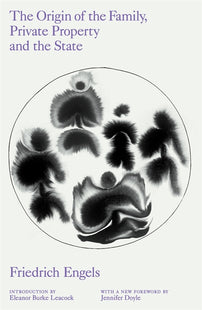Love and the New Morality
The Russian Marxist revolutionary Alexandra Kollantai was a key leader of the Russian Socialist movement, the only woman in the early Soviet government, and a tireless campaigner and writer for women's emancipation. For Valentine's Day, we present an extract from her review of The Sexual Crisis by the German writer Meisel-Hess. It is a reminder that Kollontai's ideas on sexual relations and women's liberation were part of a more general ferment of ideas on these questions in Western Europe at the beginning of this century.
For more, listen to Kristen Ghodsee on Kollontai, and on the political economy of Valentine's Day.

We can fling open the locked door leading out into the fresh air, and on to the path to closer, more loving and consequently happier relationships between the sexes only if the human psyche is changed radically and man's ‘potential for loving’ is increased. Such a change inevitably demands the basic transformation of socio-economic relations: in other words it demands the transition to communism.
What are the chief inadequacies, what are the dark sides, of legal marriage? Legal marriage is based on two equally false principles: that marriage should be forever and that the partners belong to each other and are each other's property.
The idea of marriage-for-ever is in contradiction to all that psychological scientists know about how the psyche changes during the long course of a human's life. The demand made by contemporary morality deserves to be laughed at: each person must at all costs ‘find their happiness’. People are obliged to select straight away and without making a mistake the one person from among the millions of their contemporaries with whom their soul is in harmony. Only by discovering their “second self” will they be guaranteed a successful marriage. If a person–especially if that person is a woman–in groping for the ideal, tears the heart on the sharp thorns of life's disappointments, society, perverted by current morality, instead of coming forward to help a fellow human being in distress starts victimising that person. “Society must coerce people into their ‘happiness’–this is the fine flower of our sexual morality.” Modern society doesn't care about individual happiness or even about ‘appearances’. Society has the interests of property at heart and for this reason is prepared to look on an open change of relationship as a great personal insult. Meisel-Hess drily points out that “marriage is like a flat: you become aware of its dark corners only when you've lived in it a while. It's hard luck, of course, if you have to change flats all the time because they turn out to be uncomfortable and inadequate. But that's better than being forced by circumstances to stay in an unsuitable place. It must be completely accepted by society that a person, in the course of his long life and in the process of the development of his personality, will change sexual partners.”
It seems even more absurd that marriages should be indissoluble when you bear in mind that most legal marriages are contracted ‘in the dark’; the marriage partners have only the vaguest idea of each other. They know little about the personality of the other and more than that they have absolutely no idea if they are suited physically–and happiness in marriage is not possible unless there is this physical harmony. ‘Trial nights’ which according to Meisel-Hess were common practice in the Middle Ages, are far from being ‘absurdly lacking in decency’. In a different social environment people might, in the interest of the human race and in order to ensure the happiness of individuals, exercise this right.
The idea of property and the ‘undisputed rights of possession’ that one partner has over the other is the second factor poisoning legal marriage. In fact you get this ridiculous situation. The complicated, many-sided personalities of two people who are close to each other only in a few ways are ‘obliged’ to suit each other in every way. ‘Undisputed possession’ leads to the partners being always and inconveniently with each other. You no longer have your own time, your own will, and because of the economic dependence involved, you often don't have even your ‘own separate corner’. The continual presence of the other person and the inevitably unreasonable demands made on one, as on a piece of property, turn even a passionate love into indifference and lead to an insufferable nagging over little things. You really have to agree with Meisel-Hess that when two people live on top of each other all the time the tender spring flower of even the most loving attachment will be killed. You need to have so much consideration for the other person, such a great supply of ‘warmth’, if you are to develop out of the first rush of passion the rich fruits of a deep irrevocable emotional attachment, formed in the sun of mutual warmth.
The sense of ‘property’ and of the ‘foreverness’ of legal marriage has a harmful effect on the psyche; a man has to make only the smallest emotional effort to preserve the external trappings of an attachment since the partner is in any case rivetted to him for life. The modern form of legal marriage impoverishes the soul and in no way helps mankind to gather the store of ‘great love’ which the Russian genius Tolstoy talked of and longed for.
[book-strip index="1" style="display"]





